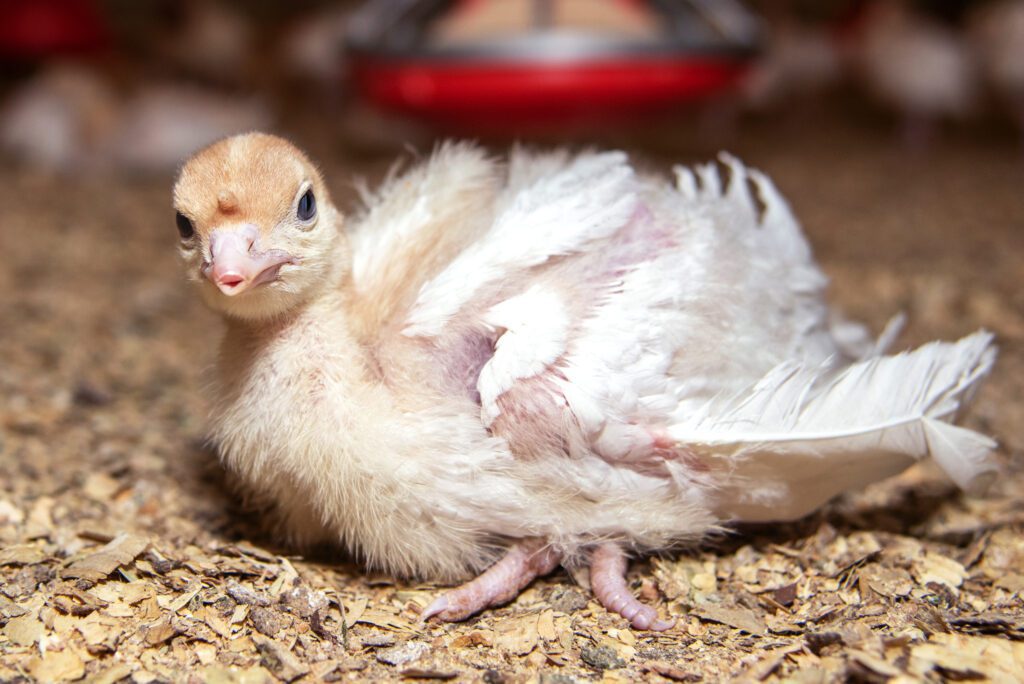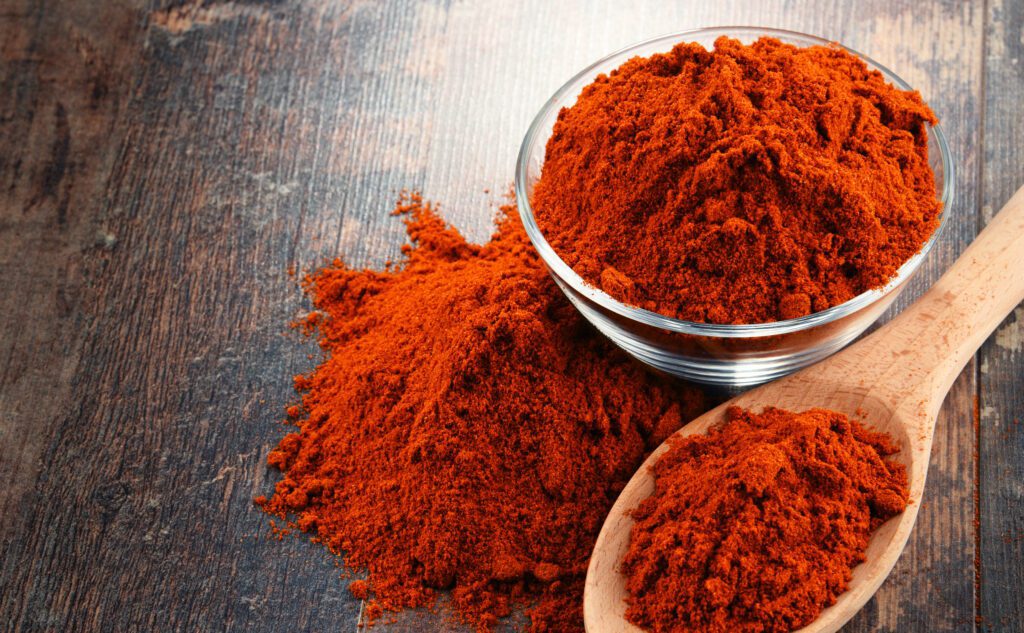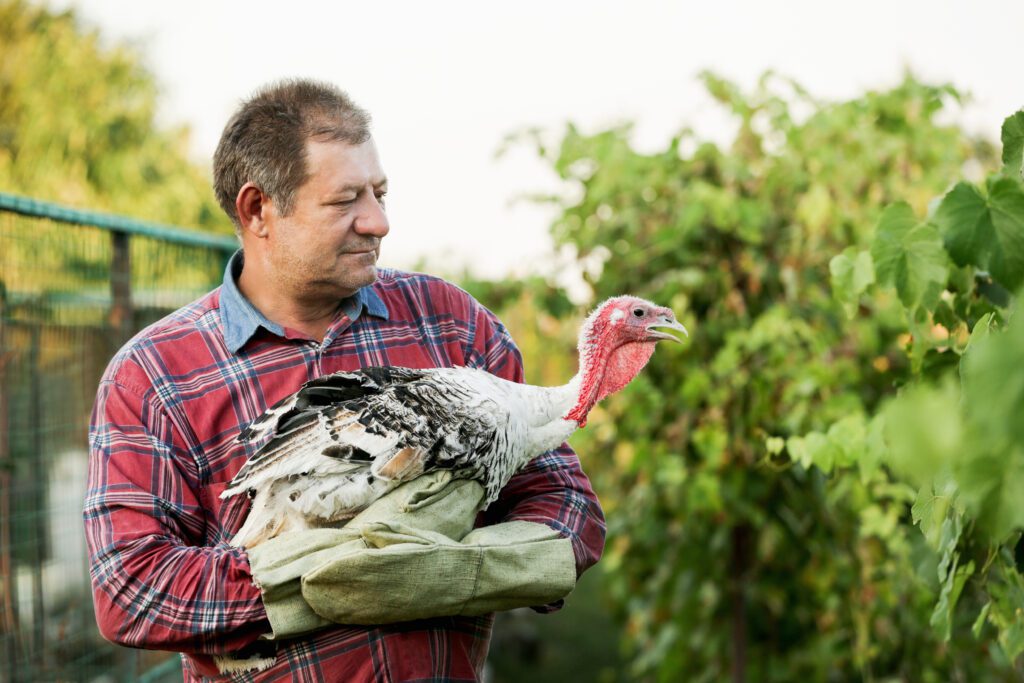
Blackhead disease, caused by the organism Histomonas meleagridis, has been a persistent challenge for turkey flocks in the poultry industry. Its rapid spread, high mortality rates, and the potential for secondary bacterial infections have made it a cause for concern among backyard poultry raisers, farm owners, and industry professionals. The infection easily spreads through contaminated soil, infected birds, or even certain other gallinaceous birds, posing a constant threat to the health and productivity of turkey flocks.
The consequences of blackhead disease in turkeys are significant. Infected birds may exhibit symptoms such as yellow droppings, decreased appetite, weight loss, and increased mortality. Additionally, the parasite migrates to the caecal region of the digestive tract, leading to extensive damage and compromised immune response. These factors can result in substantial economic losses and hamper the overall well-being of your turkey flock.
Fortunately, preventative measures are available to combat blackhead disease in turkeys. Implementing strict biosecurity measures, such as proper cleaning and disinfection practices, controlling wild bird access, and monitoring for caecal worm eggs in the environment, can significantly reduce the risk of infection.
Protecting your turkey flock from blackhead disease requires a proactive approach and a thorough understanding of the disease’s symptoms, transmission, and treatment options. By implementing stringent biosecurity measures, practicing regular health monitoring, and seeking professional advice, you can safeguard the well-being and productivity of your turkeys. In this blog post, we will arm you with the knowledge you need to protect your turkey flock from this harmful ailment.
Blackhead disease, also known as histomoniasis, is a highly contagious and potentially fatal avian disease that primarily affects turkeys. It is caused by the protozoan parasite Histomonas meleagridis. The parasite infects the caeca, which are blind pouches in the digestive system of turkeys, leading to severe damage and inflammation.
The disease can spread rapidly within a flock, causing significant economic losses for turkey farmers. It’s important to note that blackhead disease can also affect other gallinaceous birds, such as chickens, quail, and guinea fowl, although they may not show clinical signs like turkeys.
Recognizing blackhead disease in turkeys is crucial for early intervention and effective management. There are several key signs to look out for. Turkeys infected with blackhead disease may display yellow-colored droppings, often described as “mustard-like.” They may also exhibit a decrease in appetite, leading to weight loss and reduced growth rates. In severe cases, affected birds may appear weak, hunched, and lethargic.
It’s important to note that the severity of symptoms can vary depending on the age and immune status of the turkeys. Young birds, especially poults between eight and 12 weeks old, are particularly susceptible to the disease and may experience higher mortality rates. Regularly monitoring your turkey flock for any unusual behaviors or changes in droppings can help identify potential cases of blackhead disease early on.
Blackhead disease in poultry flocks is primarily caused by ingesting infective caecal worm eggs, which are shed in the droppings of infected birds. The eggs can persist in contaminated soil or bedding for extended periods, making it easy for healthy turkeys to become infected. Wild birds, such as wild turkeys and common relatives like trichomonas, can also serve as parasite carriers, further contributing to the transmission of blackhead disease.
Healthy birds ingest the infective caecal worm eggs during their normal feeding behavior. Once inside the turkey’s digestive system, the eggs hatch, and the infective larvae penetrate the caeca, where they develop into adult worms. The presence of these worms leads to the release of Histomonas meleagridis, the causative organism of blackhead disease, causing inflammation, tissue damage, and subsequent health issues in turkeys.

While no specific natural treatment can completely eradicate blackhead disease in turkeys, there are natural remedies that can help support the birds’ overall health and immune response. For example, incorporating herbs known for their anti-parasitic and immune-boosting properties, such as garlic, oregano, and thyme, into the turkeys’ diet can provide some benefits. These herbs can help strengthen the birds’ immune system and potentially reduce the severity of blackhead infection.
In addition, the American Pastured Poultry Producers Association have found that feeding Cayenne Pepper to the birds twice a day on their feed can help. They also recommend garlic water. Slice one glove of garlic and soak overnight in five gallons of water. Offer the garlic water with vitamin E oil on the surface of it in their drinking reservoir.
Furthermore, maintaining good hygiene practices, such as regularly cleaning and disinfecting the poultry environment, ensuring proper ventilation, and providing clean water sources, can help minimize the risk of blackhead infection. However, it’s important to note that natural treatments should always be used in conjunction with approved medications and under the guidance of a poultry veterinarian.
No, there are no approved medications available to treat turkey blackhead symptoms. One commonly used medication used to be Histostat (nitarsone), which had shown effectiveness in controlling the spread of blackhead disease. However, it’s important to note that the use of Histostat is now withdrawn, due to the concerns of arsenic in the drug. Therefore, consulting with a poultry veterinarian is crucial to determine the appropriate and approved treatments available in your region.
In addition to directly treating the primary infection, addressing any secondary bacterial infections that may arise in infected birds is essential. Blackhead disease weakens the turkey’s immune system, making it more susceptible to secondary infections. Antibiotics may be prescribed by a veterinarian to combat these secondary bacterial infections and support the overall health of the affected turkeys.

Preventing blackhead disease in turkeys requires implementing robust biosecurity measures and following good management practices. Here are some key preventive steps you can take:
Don’t let blackhead disease continue to be a source of worry and frustration for your turkey flock. By understanding blackhead in turkeys, recognizing their symptoms, and implementing preventive measures, you can protect your birds and secure their health and well-being.
At Freedom Ranger Hatchery, we are passionate about supporting poultry enthusiasts and farmers in their journey toward maintaining a thriving turkey flock. Remember, early detection and prompt action are key to mitigating the impact of blackhead disease. If you suspect any signs of blackhead infection or have questions about prevention, treatment, or general turkey health, don’t hesitate to contact us. Our knowledgeable team is here to provide guidance, answer your inquiries, and help you navigate the complexities of managing blackhead disease in turkeys.
Resources: